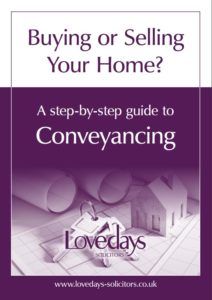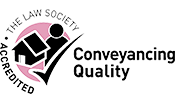- Home
- Personal Services
- Advice for Employees
- Conveyancing
- Dispute Resolution
- Boundary Disputes
- Dealing with Rent Arrears
- Japanese Knotweed Claims
- Landlord and Tenant Disputes
- Landlord Harassment & Illegal Eviction
- Negligence Claims Against Builders & Developers
- New Build Property Disputes
- Noisy Neighbour Disputes
- Personal Debt Collection
- Property Misrepresentations Claims
- Rights of Way Disputes
- Section 21 No Fault Evictions
- TOLOTA Claims
- Tree & Hedge Neighbour Disputes
- Divorce and Separation
- Family Law
- Lasting Power of Attorney
- Licensing
- Probate Law
- Trusts
- Wills
- Business Services
- Reviews
- Make An Enquiry
- Cost and Service Information
- About Us
- Contact Us
Personal Representatives
When someone dies and leaves behind a Will, they will probably have named at least one executor who is in charge of making sure that all wishes are carried out. If there is no Will then a family member will have applied for the Letters of Administration to allow them to take charge of the estate and distribute it according to the law.
A Personal Representative can be either an executor or administrator and they are legally responsible for dealing with the estate of the deceased person. This not only includes their money and property, but also any significant belongings, debts and liabilities that they may have left behind. This role requires a great deal of responsibility and can be very complicated to carry out and so it is important to have expert assistance from people like Lovedays Solicitors to help make the process much easier.
Overview of Personal Representatives
The roles of a Personal Representative can be very similar whether they are an executor or an administrator. They are the only people who are able to represent themselves. They are the only people who can access the assets of an estate when someone dies. In some situations, the Personal Representative may be required to obtain a grant of probate to show that they have accepted the role as administrator or executor. This will show the relevant financial institutions that you have the authority to deal with the assets concerned.
The most important duty of a Personal Representative is to apply for the grant of probate or letters of administration. As assets are frozen when someone dies, this blunt is necessary in order for the Personal Representative to manage the assets.
They will also be responsible for ensuring any necessary funeral arrangements are made and that the funeral is paid for. If the Personal Representative is not an immediate family member, then someone closer to the deceased may want to make funeral arrangements and pass the invoice to the Personal Representative for payment. A Personal Representative will also need to establish the value of the estate, calculate any Inheritance Tax due, pay any private debts owed to the estate, prepare the accounts and tax return, and distribute the assets to those who are entitled to them.
{quote}
Key Duties and Responsibilities
When someone dies and an executor or administrator is put in charge of their estate, then there are certain roles that need to be fulfilled. As a Personal Representative, it is important that everything you do is in accordance with the law and the assets are divided between the beneficiaries as set out in the Will or by intestacy rules.
One of the first things that a Personal Representative will need to do is establish the value of the estate that has been left behind. This will mean obtaining details of all bank accounts and any other assets or debts that they may have. This will need to be combined to come up with a total value for the estate. If the estate is valued at less than £325,000 then no inheritance tax will need to be paid. If it is more than this. Then it is up to the Personal Representative to determine whether there are any exemptions which might apply.
Applications can then be submitted and any tax that is due will need to be paid before a Grant of Probate can be given to allow the Personal Representative access to any financial assets. It is then up to the Personal Representative to collect the assets of the deceased, pay off any liabilities and then distribute what remains. To the beneficiaries.
Steps for Personal Representatives
Initial Steps
When someone dies, it is the responsibility of the Personal Representative to make sure that the death has been registered within five days. There will be many organisations that need to be informed of the death and this can be a long and time-consuming process. The Personal Representative will also be responsible for making sure that funeral arrangements have been made. If the Personal Representative is not the next of kin of the deceased, then they may wish to leave these arrangements to someone closer. That person should then submit the invoice for the funeral to the Personal Representative who can arrange payment from the estate.
It is therefore recommended to use the government's Tell Us Once service. Once they have received all the necessary details about the deceased person, they will be able to notify HMRC, the Department for Work and Pensions, the Passport Office, the DVLA, the local council, Veterans UK and Social Security Scotland of the death. These organisations can then contact you about any tax benefits or entitlements of the person who died. Tell Us Once can also contact some public sector pension schemes to ensure that future pension payments are cancelled.
Estate Administration
As the Personal Representative of the estate, you are legally responsible for the money, property and possessions of the person who died from the date of their death until the date when everything has been passed on to the beneficiaries. This is known as the administration period. During this time, you should ensure that any debts which have been left behind by the person who died are paid off using the money from the estate. You may also be required to sell assets such as properties or shares and pay income tax on things like rental income from property or business profits. In addition to this, Capital Gains Tax may need to be paid on the profits from selling shares, investments or property.
You will be required to assess the full value of the estate accurately, as well as its income in order to calculate any tax liability. This will all then need to be reported to HMRC in order to ensure that all tax has been paid. When all debts and taxes have been paid and assets sold or distributed, you will then be able to close any relevant accounts. If there is more than one Personal Representative, then it is important that you make sure you agree where to hold financial assets and set any rules on making withdrawals or payments from the accounts associated with the estate. You also need to decide what assets you will need to sell and when this will be done.
Finalising the Estate
Once taxes have been paid, Funeral arrangements are made and any debts have been settled, it is then up to the Personal Representative to distribute the remaining assets to the beneficiaries. If the deceased left behind a Will, this should outline exactly what each person should expect to receive. If they died without leaving a Will, then you will need to follow the intestacy rules to make sure that the next of kin received what they are due according to the law. You should try to obtain a signed receipt from each beneficiary when they receive their bequest to form part of the estate accounts.
You will need to keep detailed accounts off the state, setting out details of all receipts and payments that have been made. You will need to sign and approve these accounts, and any beneficiaries must also be able to see the accounts and sign them to say that they have been approved. You must then make sure that you provide a final account of the estate administration to HMRC and any other relevant bodies.
{quote}
Challenges and Legal Considerations
Common Challenges
Dealing with financial matters as the result of a death can be a complicated process, and it often leads to a number of disputes among the beneficiaries. It is therefore important that every duty you carry out is done within the law and keeping in mind the wishes of the deceased. This should help to minimise any arguments or disputes. However, working with a professional probate solicitor can help to avoid many issues. They are able to act as a neutral third party in any disputes to help find a sensible resolution for everyone involved.
A solicitor can also be very useful when handling complex estates. Anything with multiple assets and liabilities can become very complicated. They can help to arrange expert valuations for the different assets that are involved and can help you to look into what the liabilities might be and how they should be paid off. At Lovedays Solicitors, we are also experts in navigating the legal requirements for any international assets that might be included within the estate.
When to Seek Professional Help
Being an executor or an administrator can seem like a very lonely job, but this does not need to be the case. If you are handling a large estate, then it may be advisable to get professional legal assistance. This can help you to deal with any complicated business issues or partnerships, as well as having a full understanding of the tax implications of the estate and finding ways to minimise that burden. This can also be necessary when complex trusts are involved, as you will need expert understanding of how they work in order to deal with them effectively.
A death can bring about a lot of animosity and people may be surprised at what they have been left in the Will or not. This can lead to some significant disputes amongst a family which can be very difficult to navigate. A professional solicitor can act as a neutral party to advise everyone on where they stand in the eyes of the law. This can often nip many disputes in the bud while still helping to maintain a healthy family relationship. A solicitor can also assist a Personal Representative by ensuring that everything they do is compliant with the law. This means it can help them to mitigate any personal liability, especially when dealing with matters that are unfamiliar to them.
How Lovedays Solicitors Can Help
At Lovedays Solicitors in Derbyshire, we have been dealing with issues of probate for more than 100 years. We have supported a vast number of Personal Representatives to navigate the challenges and complexities of wills and intestacy laws. Our expert team can provide knowledgeable legal advice as well as assisting in matters such as estate administration and dispute resolution. We can help on all matters of probate law, including contesting a will, letters of administration, and inheritance tax, to name just a few.
We have many satisfied clients who have found that the burden of being a Personal Representative was eased significantly by working with us. We pride ourselves on offering excellent customer service and specialist knowledge, all combined with a friendly and approachable manner. We understand that this can be a difficult time for everybody involved and so we will treat each case with sensitivity at every step of the way.
Conclusion
Personal Representatives can find themselves taking on roles of great responsibility when someone dies. Managing a Will and the assets within it can be extremely complicated and can cause huge amounts of stress. There is a lot that needs to be considered and it can often require expert and detailed knowledge of different areas of probate law and finance.
That is why the team at Lovedays Solicitors is here to help you at every step of the way. With dedicated legal advice and unwavering support, we can make the journey much easier for you in order to ensure that all the details of the Will are carried out according to the wishes of the deceased and to the letter of the law. Contact our expert legal team today to find out more about how we can help you as a Personal Representative.
{quote}
Frequently Asked Questions
Anyone who is named in the Will of the deceased as an executor can be a Personal Representative. If no Will has been left, then someone who is entitled to inherit the estate under the Rules of Intestacy can apply to be the Personal Representative instead.
Even if you are named as the executor of an estate, you have no obligation to fulfil that role. If you are the only named executor, then you can stand down and someone else will need to apply to the court to be an administrator. If you initially agreed to be an executor but wish to stand down, then you can renounce the position with immediate effect. However, if you have already interfered in the estate, then you may be barred from renouncing.
A Personal Representative can be anybody who is over the age of 18 and mentally capable to fulfil the task. The executor cannot be a former spouse or civil partner if the marriage or civil partnership came to an end after the Will was written. It is legal for a Personal Representative to be a beneficiary of the estate for which they are executor.
Get Support Today
Handling the responsibilities of a Personal Representative can be overwhelming, especially when dealing with the complexities of estate administration and probate law. At Lovedays Solicitors, our experienced team is here to support you every step of the way. We offer expert guidance to ensure that all legal duties are fulfilled accurately and efficiently, reducing the stress and potential for disputes.
Trust us to help you navigate this challenging process with professionalism and care, ensuring that your loved one's wishes are honoured. Contact Lovedays Solicitors today for reliable and compassionate support as a Personal Representative.

Free Guide
If you don’t know your leasehold from your freehold, then get our Free Conveyancing Guide. It contains details about the steps you will need to take with any property transactions. The Guide giving you detailed guidance on what your lawyer will be doing for you and what to look out for.


Lovedays Solicitors, Brooke-Taylors Solicitors, Potter and Co Solicitors and Andrew Macbeth Cash and Co Solicitors are the trading names of Derbyshire Legal Services Limited which is a company registered in England and Wales under company number 08838592. Registered office Sherwood House, 1 Snitterton Road, Matlock, Derbyshire, DE4 3LZ.
Authorised and Regulated by the Solicitors Regulation Authority under SRA ID number 637916.
-
01629 56660
-
This email address is being protected from spambots. You need JavaScript enabled to view it. -
Sherwood House
1 Snitterton Road
Matlock
Derbyshire
DE4 3LZ
© Copyright 2019 Derbyshire Legal Services Limited | Website by WebWorks